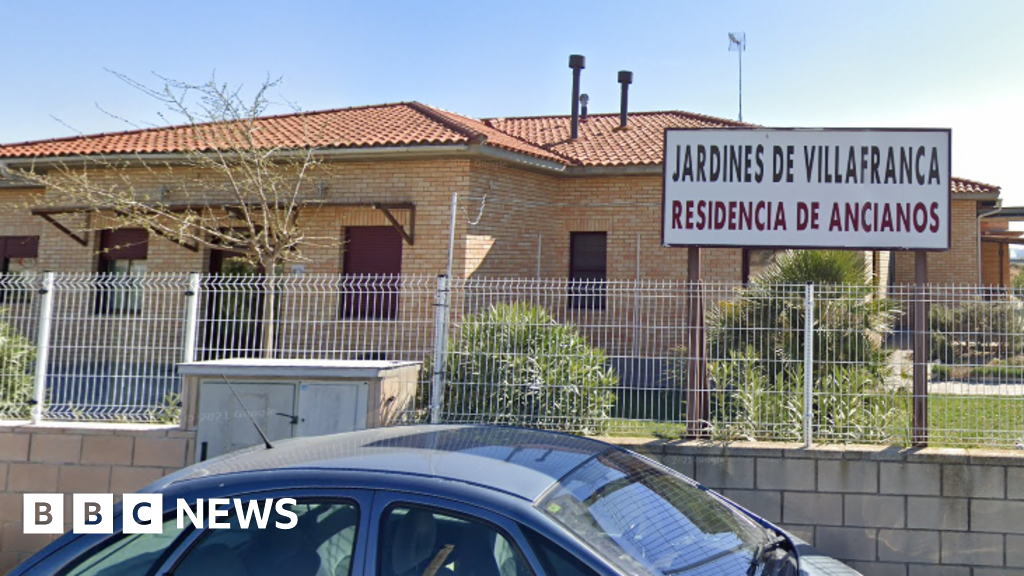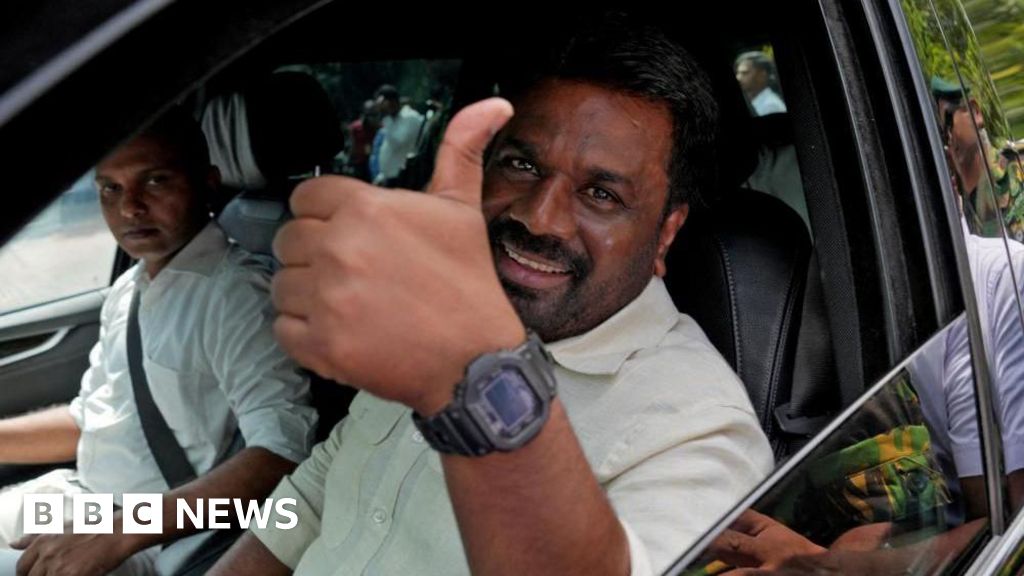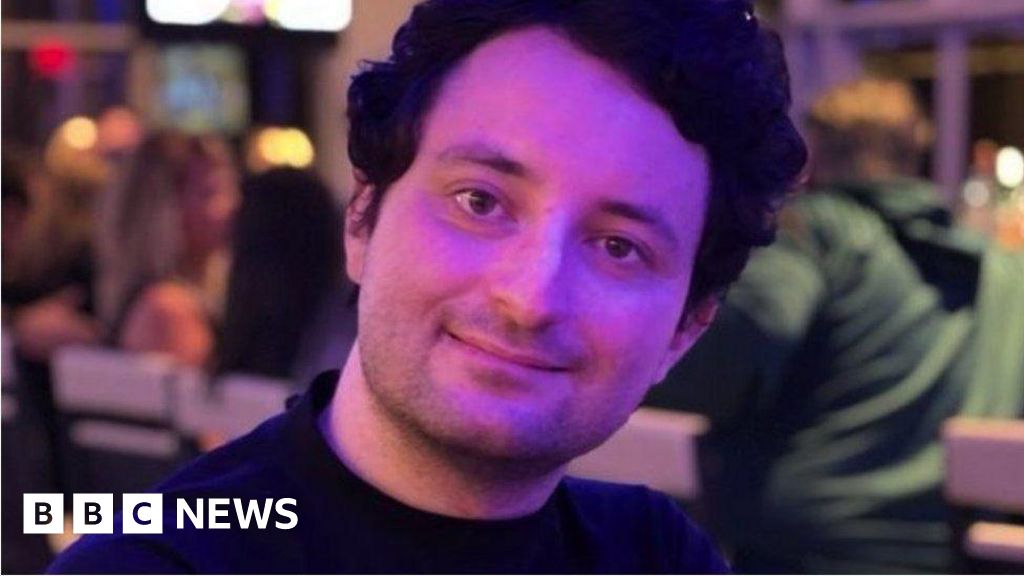ARTICLE AD BOX
 Image source, Getty Images
Image source, Getty Images
There was a time when Don was pouring up to $200,000 (£164,700) every week into cryptocurrency trades.
He slept fitfully and would be up in the wee hours to monitor prices and his portfolio balance. "I'd break into a sweat before going on long-haul flights, as I would not be able to access the internet," he said.
Don works in a company that processes central bank digital currency (CBDC) transactions. He did not want to use his real name and wishes to remain anonymous because he fears his comments could spark a backlash from investors.
He says he went on a "downward spiral" in the middle of 2022 - and that's when he decided to seek help.
The solution came in the form of a four-week stay at The Balance, a sprawling rehabilitation centre with dozens of staff on the Spanish island of Majorca.
Don lived in a private villa and was attended to by his own butler and chef. His treatment comprised therapy but also massages, yoga and bike rides, all for a hefty bill: upwards of $75,000.
Founded in Zurich, with properties in London and Majorca, The Balance describes itself as a "safe space enabling health and fulfilment". The landing page has pictures of a beachfront villa, spa and glowing testimonials from past clients. The centre lists treatment programmes for anxiety, burnout, depression, post-traumatic stress disorders and eating disorders.
Don says it helped him "wean off crypto".
The pandemic and a volatile crypto market have spurred a trading frenzy in digital currencies. And now, luxury rehab centres are cropping up around the world, promising to treat "crypto addiction".
Most of the rehab centres the BBC has found appear to be of the luxe variety, and also offer treatment for other addictions: narcotics, alcohol and eating disorders. Three rehab centres and two addiction clinics the BBC contacted said they have received hundreds of related queries in the past two years.
But addiction experts are sceptical whether crypto trading warrants such an exorbitant intervention.
Image source, The Balance
Image caption,A brief stay at luxury rehab centres like The Balance can cost tens of thousands of dollars
"The treatment for crypto addiction is similar to other addictions," says Anna Lembke, a psychiatry professor at Stanford University and chief of the Stanford Addiction Medicine Dual Diagnosis Clinic.
"It's a biopsychosocial disease so it requires a biopsychosocial intervention: medications in some cases, individual and group psychotherapy, changing habits and environment, (or) implementing healthier replacement activities."
But, she adds, the cost is not always justified. Experts like her argue that it's akin to gambling and should be treated as such.
"They are making money off desperate people," says Lia Nower, director at the Centre for Gambling Studies in Rutgers School of Social Work. "Whether you're 'addicted' to trading crypto, betting on sports, or playing the lottery, your symptoms and treatment will be largely the same."
Like other addictions, treatment for crypto addiction should begin with abstinence and managing withdrawal symptoms - which could include anxiety, irritability and insomnia, Ms Lembke said. "No crypto trading or viewing for at least four weeks, which gives the brain a chance to reset reward pathways. The [withdrawal] symptoms are usually time-limited and can be managed with emotional support and reassurance that they will eventually go away."
In the long run, treatment would also include healthier options for financial investment, she added.
Treating crypto addiction is a nascent business, so it doesn't yet require specific certifications. Most of the therapists and rehab centre executives the BBC spoke to describe themselves as certified counsellors for mental health and a variety of addictions, from alcohol to substance abuse, gaming and gambling.
The centres argue that while crypto addiction has strong parallels with gambling, it's also more addictive - for one, it's more exciting because it's so unstable, and the trades can happen round the clock.
"Crypto trading has an air of being legitimate, whilst gambling is more talked about as being potentially problematic," said Jan Geber, chief executive at Zurich-based rehab centre Paracelsus Recovery.
Seeking help is also less common, he adds, because crypto trading is largely unregulated. In contrast, some countries require gambling platforms and casinos to proactively identify and exclude problem gamblers, or provide information and tools on how they should manage signs of addiction.
The signs of a crypto addiction are not too different either.
Those who are addicted to crypto trading start to increasingly turn to it as a source of "excitement and pleasure in their lives", said Aaron Sternlicht, who runs New York-based Family Addiction Specialist with his wife, Lin.
He says tell-tale signs include lying, stealing, debt; facing difficulties relaxing or sleeping; monitoring crypto prices at all hours; and trading at the expense of relationships, career and education opportunities.
Image source, Getty Images
Image caption,The volatilities of the crypto market also make it more addictive, experts say
Don, for example, sought options for treatment when his girlfriend broke up with him after she realised the extensive losses he had racked up during the crypto downturn in 2022.
Jane, a 32-year-old Londoner whose name has been changed on request, said she would go on "trading benders" that lasted three to four days, which convinced her partner that she was having an affair.
"The fact that I couldn't tell him what I was actually doing made it worse. Even though the truth is out now, our relationship never fully healed."
Jane started buying crypto in 2014. "In the beginning, I was only investing a couple of thousands, but by the end, I could put hundreds of thousands down on just one trade," she says.
She eventually sought help from Paracelsus Recovery, where programmes for crypto addiction range from four to six weeks, at a weekly cost of $104,000 (£85,000). Online therapy sessions cost $650 an hour. Treatment involves blood tests, customised diet plans, yoga, acupuncture, and medication where necessary, she added, describing it as a "360-degree approach" to mental health.
Crypto addicts often need help setting boundaries, such as time limits for trading and stop-loss limits, orders with instructions to close out a position when it reaches a certain price, to guard investors against excessive losses.
Therapists at the centre help them to set such boundaries, said Abdullah Boulad, chief executive officer and founder of The Balance. But he added that they do not mandate that clients go cold turkey, or require them to completely disconnect from their devices.
Crypto addiction, experts say, is also often diagnosed because of other conditions.
Keith, who also did not wish to use his real name, said he went to Paracelsus Recovery because of dependency on sleep medication, but later found crypto addiction to be the root cause.
The 51-year-old says he got hooked on crypto trading during the Covid-19 lockdown.
"We were all isolated. This made it easy to trade in secret," he says.
"It was only when my children came to stay with me over Christmas that I realised how erratic I had become. I was hostile towards them, and they were worried that I was sleeping for days at a time. Yet, all the while, none of us thought my trading was part of the problem."

 1 year ago
20
1 year ago
20








 English (US)
English (US)